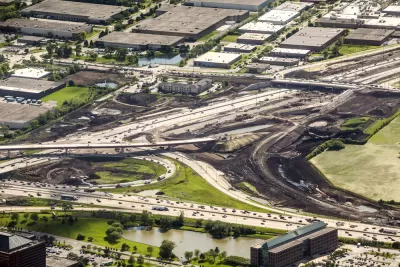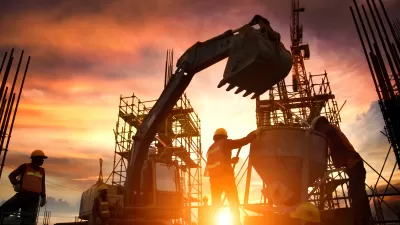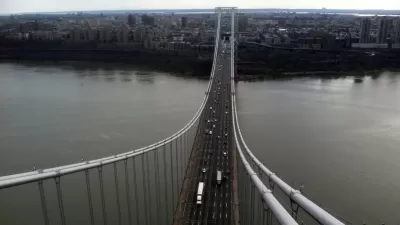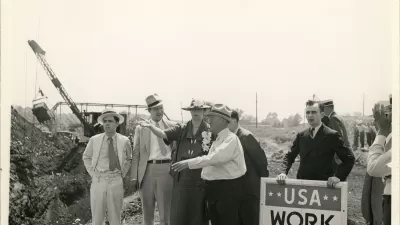As recessions fears grow, discussions about increasing the level of federal spending on infrastructure projects also grow.

The U.S. economy now appears headed for a recession, thanks to the S&P 500 dropping 20 percent from a recent high, so Jeff Davis writes about the potential of infrastructure spending as an economic stimulus.
According to Davis, “predictably, there are those in Congress who are calling for an increase in federal infrastructure spending as part of a response to this downturn in the business cycle.” WIth that political momentum in mind, Davis poses the following questions: “[I]s increased infrastructure spending the best way to counter a downturn in the business cycle that is caused by the confluence of a [sic] (a) a reduction in foreign trade; (b) a temporary collapse in demand for travel, hospitality, and public gatherings, and (c) a drastic drop of oil prices and its effect on the energy sector?”
To produce an answer, Davis investigates the 2009 American Recovery and Reinvestment Act, as well as highway stimulus spending from 1958, 1975, 1983, and 1991.
The answer is that the case for infrastructure spending in a recession is complicated. The slow pace of capital investments can make this approach ineffective as a response to short-term business cycles, but governments should do be spending on infrastructure anyway, for the potential long-term benefits.
FULL STORY: Looming Recession Sparks Familiar Calls for Infrastructure As Stimulus

Alabama: Trump Terminates Settlements for Black Communities Harmed By Raw Sewage
Trump deemed the landmark civil rights agreement “illegal DEI and environmental justice policy.”

Study: Maui’s Plan to Convert Vacation Rentals to Long-Term Housing Could Cause Nearly $1 Billion Economic Loss
The plan would reduce visitor accommodation by 25% resulting in 1,900 jobs lost.

Planetizen Federal Action Tracker
A weekly monitor of how Trump’s orders and actions are impacting planners and planning in America.

Waymo Gets Permission to Map SF’s Market Street
If allowed to operate on the traffic-restricted street, Waymo’s autonomous taxis would have a leg up over ride-hailing competitors — and counter the city’s efforts to grow bike and pedestrian on the thoroughfare.

Parklet Symposium Highlights the Success of Shared Spaces
Parklets got a boost during the Covid-19 pandemic, when the concept was translated to outdoor dining programs that offered restaurants a lifeline during the shutdown.

Federal Homelessness Agency Places Entire Staff on Leave
The U.S. Interagency Council on Homelessness is the only federal agency dedicated to preventing and ending homelessness.
Urban Design for Planners 1: Software Tools
This six-course series explores essential urban design concepts using open source software and equips planners with the tools they need to participate fully in the urban design process.
Planning for Universal Design
Learn the tools for implementing Universal Design in planning regulations.
Caltrans
Smith Gee Studio
Institute for Housing and Urban Development Studies (IHS)
City of Grandview
Harvard GSD Executive Education
Toledo-Lucas County Plan Commissions
Salt Lake City
NYU Wagner Graduate School of Public Service





























